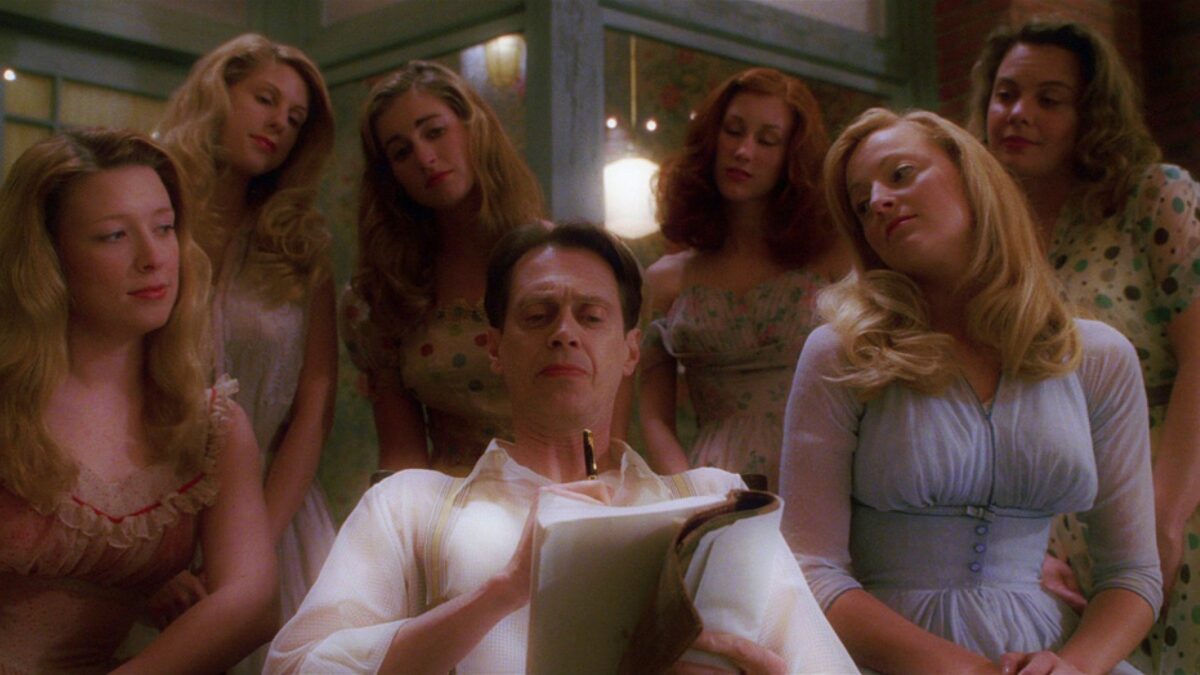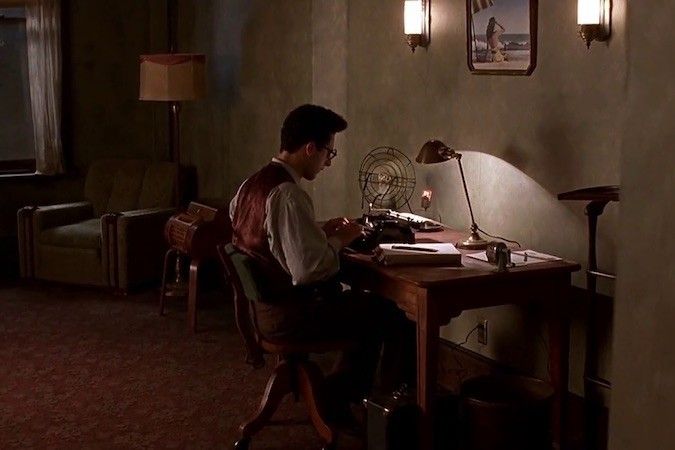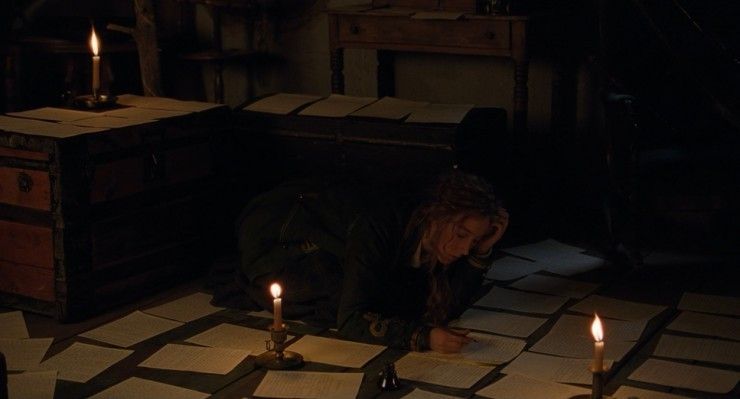
A well-crafted screenplay is the foundation of any successful film or television production.
If you see me in real life and I appear stressed, it’s probably because I am either waiting on someone to give me notes on an idea or I owe someone notes. One thing they don’t tell you in film school is that notes are going to be your ticket to jobs in Hollywood.
One of the most valuable tools in the screenwriter’s arsenal is the ability to give and receive constructive feedback on scripts.
Screenplay critiques serve many purposes in the screenwriting process. First and foremost, they offer valuable feedback to the writer, identifying strengths and weaknesses in their work. This feedback helps writers refine their scripts, making them more engaging and effective. Furthermore, screenplay critiques serve as a learning tool, allowing writers to see how their work is being received by others and providing an opportunity for growth and improvement.
If you can give good notes, you can get a job at any production company, or you can show your value and make friends with writers who hire you to work with them on shows or as their assistants.
Mastering the art of screenplay critique is an essential skill that will elevate your writing and improve your storytelling abilities.
Let’s dive into the world of script notes and see how they can help you become a better writer.
The most important part? Don’t be a dick.
Table of Contents
Understanding Script Notes and Their Importance
We all want to watch the best movies and TV shows. To get to them, you need a series of checks and balances. You need multiple reads and rounds of notes to hone your idea.
Script notes are detailed feedback provided by script readers, fellow writers, or industry professionals on a screenplay. They typically include observations on various aspects of the script, such as structure, character development, dialogue, pacing, and overall storytelling. The primary goal of script notes is to help the writer identify areas of improvement in their screenplay and provide guidance on how to address these issues.
Once you see them, you can rewrite your screenplay.

All Writing is Rewriting!
The importance of script notes lies in the iterative nature of screenwriting. Rarely is a script perfect in its first draft. Instead, it undergoes multiple revisions before reaching its final form. Script notes are a crucial part of this revision process, as they help identify areas where the script can be improved and provide suggestions for how to make these improvements.
Once you improve the story to its finished product, you can package it and get the movie or TV show going.
The Art of Giving Constructive Feedback
Many people are bad at this, so I knew we needed to include a section on it. Don’t be a dick. Instead, work to come up with ideas that may help the writer achieve their goals.
Giving constructive feedback is an essential skill for anyone involved in the screenwriting process. It’s important to strike a balance between providing honest, helpful criticism and offering praise and encouragement. To give effective feedback, it’s crucial to focus on the script’s specific elements and provide actionable suggestions for improvement.
One of the keys to giving constructive feedback is to approach the process with empathy. Remember that the writer has invested time and energy into creating their script, and your feedback should be respectful and supportive. Offer praise for the aspects of the script that work well, and be specific in your compliments. This will help the writer understand their strengths and build confidence in their abilities.
Again, don’t be a dick and say something doesn’t work without being specific about why it doesn’t work.
When offering criticism, focus on the script’s elements rather than the writer’s abilities. Avoid using negative language or making personal comments about the writer. Instead, provide specific examples of areas that need improvement, and offer suggestions on how to address these issues. By keeping your feedback focused on the script itself, you’ll help the writer feel supported and motivated to make improvements.
Some scripts need help!

How To Give Notes on a Script – Best Practices
When giving notes on a script, it’s important to follow some best practices to ensure your feedback is constructive and helpful.
Here are some guidelines to keep in mind:
-
Read the script thoroughly: To provide meaningful feedback, you need to have a deep understanding of the script. Take the time to read it carefully, and make notes as you go. This will help you identify areas for improvement and provide specific examples when offering feedback.
-
Focus on the big picture: Before diving into the details, consider the script’s overall structure and story arc. Are there any plot holes or inconsistencies? Are the characters well-developed and engaging? Addressing these fundamental issues should be your priority when giving notes.
-
Be specific: When offering feedback, provide clear examples and explanations to support your observations. This will help the writer understand your perspective and make it easier for them to address the issues you’ve identified.
-
Offer actionable suggestions: Instead of simply pointing out problems, provide suggestions for how to improve the script. This will make your feedback more valuable and help the writer feel empowered to make changes.
-
Be respectful and supportive: Remember that your goal is to help the writer improve their script, not to tear them down. Offer praise for the aspects of the script that work well, and be empathetic and understanding when offering criticism.
-
Don’t be a dick: Seriously, I don’t know how many times I have to add this in there. Your job is to help. Not hinder.

What Are Script Notes – Types and Formats
There are so many different types of notes in Hollywood.
Here’s an overview of the most common types of script notes you might encounter:
-
Coverage: Coverage is a summary and evaluation of a script, typically prepared by a script reader or industry professional. It provides an overview of the script’s strengths and weaknesses and includes a recommendation on whether the script should be considered for further development or production.
-
Development notes: Development notes focus on the creative aspects of the script, offering suggestions for improving the story, characters, and dialogue. These notes are typically prepared by producers, development executives, or other industry professionals involved in the development process.
-
Writer-to-writer notes: These notes are provided by fellow writers, offering feedback and suggestions from a writer’s perspective. They can be informal, such as comments exchanged in a writers’ group, or more structured, such as a script swap or feedback session.
-
Line edits: Line edits focus on the script’s grammar, spelling, and formatting. These notes are typically prepared by a script editor or proofreader and help ensure the script is polished and professional.
These notes can be delivered in various formats, including written notes, verbal feedback, or a combination of both. The format you choose will depend on your preferences and the nature of the feedback you’re providing. For example, written notes can be more detailed and specific, while verbal feedback might be better suited for discussing broader issues and brainstorming solutions.
Try and structure your notes in a way so you cover acts one, two, and three in order. With overarching ideas at the top.

Script Notes Example – Breaking Down the Process
So, how are you supposed to give good notes?
Let’s break down the process using a hypothetical script.
-
Read the script thoroughly: Begin by reading carefully, making notes on any issues or areas for improvement you encounter.
-
Focus on the big picture: After reading the script, consider the overall story structure and character development. For example, you might notice that the third act feels rushed and that the protagonist’s character arc is unclear.
-
Be specific: When offering feedback on these issues, provide specific examples from the script. For instance, you could point out a scene where the protagonist’s motivation is unclear or a plot point that feels contrived.
-
Offer actionable suggestions: In addition to identifying issues, offer suggestions for how to address them. For example, you might recommend extending the third act to allow for a more satisfying resolution or adding scenes to better develop the protagonist’s character arc.
-
Be respectful and supportive: Throughout the feedback process, it’s crucial to maintain a respectful and supportive tone. Remember that the writer has invested significant time and effort into their script, and your feedback should be focused on helping them improve their work.
Utilizing a Script Notes Template for Efficiency
I sat down and looked at some of the best notes docs I have been given. Then, I decided to list ten things I think you should address if you were trying to give someone notes. From that, I made this template.
By using a template, you can ensure that you cover all the necessary elements of the script and provide consistent feedback across multiple scripts or writers. Templates can also save time, as you won’t need to start from scratch with each new script.
Here are some common elements to consider when critiquing a screenplay:
-
Story/Plot: Does the story have a clear and compelling arc? Are there any plot holes or inconsistencies?
-
Characters: Are the characters well-developed and interesting? Do their actions and dialogue feel authentic and consistent with their personalities?
-
Dialogue: Is the dialogue realistic and engaging? Does it move the story forward or feel extraneous?
-
Pacing: Is the story paced effectively? Does it feel too slow or rushed at any point?
-
Structure: Is the screenplay structured effectively? Does it follow the traditional three-act structure or another effective structure for the genre?
-
Themes: Are there any themes or messages conveyed in the story? Are they effectively communicated?
-
Tone: Is the tone consistent throughout the screenplay? Does it fit the genre and subject matter?
-
Setting/World-building: Is the setting or world of the story well-established and believable?
-
Visuals: Are there any scenes that would be particularly visually striking on screen? Are there any scenes that could be cut or condensed to improve the visual storytelling?
-
Overall Impression: What is your overall impression of the screenplay? Would you recommend it for production?

Tips for Receiving and Applying Script Feedback
Here’s a huge part of the process. Try not to be a dick when hearing notes, too. It can hurt or be scary to have someone go over your work. Trust me, I have snapped on occasion. But as a writer, receiving feedback on your work will help you grow.
People are giving it out of the goodness of their hearts. So, be nice and listen to what someone has to say (even if you don’t always agree with their notes).
Here are some tips for receiving and applying script feedback:
-
Listen carefully: When receiving feedback, listen carefully to the comments being offered. Try to understand the perspective of the person giving the feedback and take notes to help you remember their suggestions.
-
Don’t take it personally: Remember that feedback is about the script, not about you as a person. Try not to take criticism personally, and focus on using the feedback to improve your work.
-
Consider the source: Consider the credentials and experience of the person giving the feedback. A producer or industry professional may have different insights than a fellow writer in a workshop.
-
Evaluate the feedback: After receiving feedback, take time to evaluate the comments and suggestions. Consider which feedback resonates with you and which suggestions you feel are most valuable.
-
Make revisions: Once you’ve evaluated the feedback, begin making revisions to your script. Focus on addressing the areas for improvement while maintaining the strengths of the script.

Becoming a Master of Screenplay Critiques
Mastering the art of screenplay critique is an essential skill for any writer looking to succeed in the film or television industry. By understanding the importance of script notes, giving constructive feedback, and utilizing best practices, you can become a valuable asset to any creative team.
Remember to approach the feedback process with empathy and respect, focusing on the script’s elements rather than the writer’s abilities. Utilize script note templates to streamline the process and maintain consistency in your feedback. Don’t forget to balance praise and criticism, offering encouragement and support along with constructive criticism.
With these tools and techniques, you can become a master of screenplay critiques, helping writers refine their scripts and tell more engaging and effective stories.
Now go out there, and give and receive some great notes.
Do you have any tips for giving and receiving script notes? Let us know in the comments.














